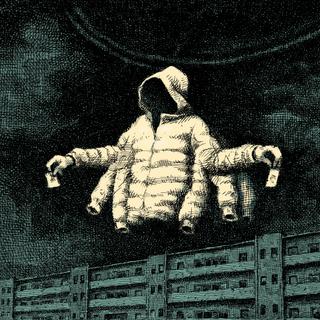


Migrants in France are drug traffickers' new, disposable workers
InvestigationIn Paris suburbs, Marseille, Lyon and Nantes, there's a new workforce on the drug-dealing scene: undocumented migrants, who are even easier for networks to exploit. They are given the most dangerous, least-rewarding jobs – and are dying as a result.
It was an ordinary afternoon at the Bobigny courthouse. The 13th chamber, nicknamed the "narcs chamber," summoned a series of drugsellers and lookouts; the dogsbodies to whom drug dealers entrust a few grams of drugs to be sold, day or night, on the fours [large drug markets] of Seine-Saint-Denis. It was an ordinary afternoon that revealed a lot about the people now being used by the kingpin drug dealers: Of the 13 defendants convicted, six were undocumented young men. None of them were represented by a lawyer and only one took the stand. The others were tried in their absence. With no faces, voices or complete life stories, the case files came one after another, seemingly interchangeable – like the temporary workers themselves at the bottom of the drug-trafficking ladder.
Among them was Fabou D., 25, an undocumented Senegalese man who had been given an OQTF order, an obligation to leave French territory. He had €575 in cash on him and eight grams of crack in a small black bag, which he tried to get rid of when the police stopped him in a housing estate in the Parisian suburb Montreuil. Skander N., an Algerian man who is also undocumented, was arrested in the Cité Emile-Zola in the northern suburb Saint-Ouen, with €100 and 56 grams of cannabis on his person. He was a "lookout," according to the prosecutor, based on his statements.
Wissem B., a Tunisian who had also received an OQTF, was carrying 25 grams of cocaine in aluminum foil when he was stopped in Aubervilliers. "Everything points to the fact that it was for crack," said the prosecutor. The man explained to the police that the drug did not belong to him and that he had found it in a tissue handed to him by a stranger shortly beforehand, to blow his nose. The sentences handed down that afternoon, ranging from six to 12 months' imprisonment, often suspended, put an end to the short-lived careers of these lowly drug-dealing foot soldiers, who were soon replaced.
'A workforce controlled by drugs'
A few floors above the courtroom, in the offices of the Division des Affaires Criminelles et de la Délinquance Organisée (DACRIDO – the department of criminal affairs and petty crime), these types of profiles are well known. Before they get to court, clogging up the hearings, they can be observed at the biggest dealing hotspots on the outskirts of Paris such as Aubervilliers-Pantin-Quatre-Chemins, La Capsulerie in Bagnolet and Saint-Denis. Alice Dubernet, head of DACRIDO, painted a picture of these young people who are "difficult to trace" for both investigative departments and social services: "These isolated migrants are an ad hoc workforce who are easy to exploit and don't move up in the hierarchy. For the trafficking networks, they are easy fall guys, paid less than the usual staff: No more than €80 a day for a lookout, €100 for a seller."
You have 80% of this article left to read. The rest is for subscribers only.
